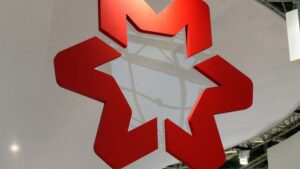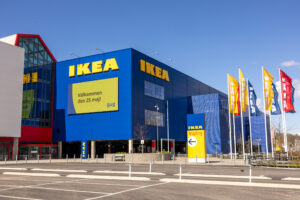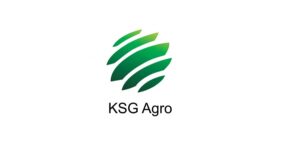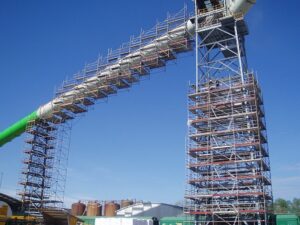
The United States and Russia have agreed on four principles after talks that lasted more than four hours in Saudi Arabia, US Secretary of State Marco Rubio said on Tuesday, CNN reported. The senior official listed them.
“Restore the functionality of our respective missions in Washington and Moscow. In order for us to continue down this path, we have to have diplomatic institutions that are open and functioning properly,” he said.
“We’re going to appoint a high-level team from our side to help negotiate and work to end the conflict in Ukraine in a way that is lasting and acceptable to all parties involved,” Rubio said.
“To begin discussing, contemplating and exploring both geopolitical and economic cooperation that could result from an end to the conflict in Ukraine,” the Secretary of State added.
“The five of us who were here today… will continue to be engaged in this process to make sure it moves forward in a productive way,” the State Department head summarized.
The five people Rubio mentioned were himself, National Security Advisor Mike Waltz, Special Envoy Steve Vitkoff, as well as Russian Foreign Minister Sergey Lavrov and presidential aide Yuri Ushakov.
“President Trump wants to stop the killing; the United States wants peace and is using its power in the world to bring countries together. President Trump is the only leader in the world who can convince Ukraine and Russia to agree to this,” Rubio added.
The secretary of state also said that “one phone call followed by one meeting is not enough to establish a lasting peace. We must act, and today we took an important step forward.”
Rubio expressed his gratitude to the Kingdom of Saudi Arabia for hosting him under the leadership of Crown Prince Mohammed bin Salman Al Saud.
As reported, on Tuesday, the first round of talks between US and Russian officials took place in Riyadh (Saudi Arabia), which lasted more than four hours. As previously reported by the media, the main topic of the talks should be the end of the Russian war in Ukraine.

In 2025, Metinvest Mining and Metallurgical Group will invest almost UAH 5.7 billion in the development of its Kryvyi Rih mining and processing plants – Central, Ingulets and Northern mining and processing plants (MPPs), which were transformed into United Mining and Processing Plant (UMPP).
According to the press release, Metinvest will invest in the development of Kryvyi Rih mining and processing plants in 2025. The main investments will be aimed at maintaining key equipment, creating alternative sources of electricity and creating safe and comfortable workplaces. The company more than doubled its investments in iron ore assets compared to last year.
The largest part of the investments will be allocated for major repairs of equipment and facilities of the plants – more than UAH 1 billion. Investment projects are being implemented here to ensure the stability of production processes, reliable operation of transport and key equipment, and the fulfillment of product quality indicators to maintain competitive positions and reduce the cost of iron ore production. Funds are also planned for major overhauls of mining and processing equipment and power equipment.
Energy independence is also one of the priorities for the year to minimize technological risks for enterprises in the event of possible power outages. To this end, Northern and Central GOKs are planning to build gas reciprocating power plants with a total capacity of about 20 MW and solar generation with a capacity of 23 MW. A total of UAH 1.3 billion will be allocated for these projects.
“In 2025, the volume of investments in Kryvyi Rih GOKs will be increased, and like last year, the company’s investment strategy is focused primarily on maintaining the enterprises’ performance. As the war continues, the implementation of large-scale investment projects to modernize and build new production facilities in Ukraine is very limited. However, despite the difficult situation, the company continues to invest in development, adjusting its expenditure items to meet the needs and challenges of the day. For example, at GOKs, the key investment focus of the year is not only to maintain facilities and the fleet of operating equipment, but also to create energy autonomy for mining enterprises,” said Dmitry Nepomnyashchy, Director of Capital Construction and Investments at Metinvest GOKs.
In addition, in 2025, the active phase of the strategic project for the thickening of beneficiation waste at Pivdennyi GOK begins – this large-scale project is aimed at ensuring the transportation of thickened tailings to higher tailings storage levels after 2026. Additionally, it will reduce energy costs. In 2025, the company plans to spend UAH 1.4 billion.
The program to improve working conditions also remains relevant. This year, UAH 70 million will be allocated to create workplace conditions, including major repairs of amenity facilities in the administrative and amenity complexes of the plants’ structural units.
As reported earlier, Metinvest has implemented a new model for its Kryvyi Rih mining and processing facilities, bringing together its mining and processing plants in Kryvyi Rih under a single management.
“Metinvest comprises mining and metallurgical enterprises located in Ukraine, Europe and the United States. Its major shareholders are SCM Group (71.24%) and Smart Holding (23.76%), which jointly manage it.
Metinvest Holding LLC is the management company of Metinvest Group.

Ukrainian furniture makers exported $909 million worth of products in 2024, up 15.5% year-on-year, Oksana Donska, a board member of the Ukrainian Association of Furniture Manufacturers (UAFM) and an export expert, toldInterfax-Ukraine.
“Together, the woodworking industry and the furniture industry are among the top 10 export commodity groups with a share of 5.7% in Ukraine’s merchandise exports. I am confident that we will maintain the dynamics of growth in furniture exports and there is a chance that this year we will cross the $1 billion mark,” Donska said.
The expert explained such a positive outlook by the trends of the global furniture market, which has returned to growth, for example, in European countries from 8 to 10% per year.
“Another plus is that IKEA is returning to us to purchase a fairly wide assortment matrix of furniture. At the same time, the number of exporters to large companies is growing. This also applies to small and medium-sized businesses that are forced to export because the domestic market has shrunk significantly,” she says.
According to her, before the war, experts estimated the capacity of the domestic market at $1-1.2 billion, but now it has halved to about $500-600 million.
At the same time, Ukrainian furniture makers achieved export growth in 2024 amid a shortage of personnel (by 30-40%, according to manufacturers). The furniture makers were able to optimize their costs and maintain competitive prices thanks to grant support from both the government and international donors, which helped them to change equipment in their factories and increase their productivity. According to Donska’s estimates, about 50 of the most active manufacturers (out of about 11,000 companies) have attracted state aid alone, and a significant number of them have used it to scale up and move from small to medium-sized businesses. As for microbusinesses, they actively chose a narrow specialization and sought partnerships.
Industry associations, both national and local, helped solve the issue of human resources and export promotion. According to Donska, thanks to UAFM training programs, more than 800 people have been involved in the industry since December last year, and the furniture school has graduated 295 equipment operators and furniture designers. The export promotion project also showed good results. “Participating in an international exhibition with a separate stand is expensive and not affordable for everyone. But joining the national exposition for a few square meters is already possible. Thanks to this program, more than 200 companies have shown their products at international exhibitions in Poland, Germany, the UK, Italy and the UAE,” Donska said. Individual furniture clusters (Lviv and Rivne) also addressed the issue of training and staffing.

IKEA stores are expected to open in Ukraine in 2025, the date will be officially announced by IKEA, said Dmitry Lashin, chief operating officer of Lavina Mall and Blockbuster Mall.
“There is very encouraging information that it will definitely happen this year, but there are two scenarios. The first is that the fighting in Ukraine will stop, so it will happen very, very quickly. If the fighting does not stop, the opening will take a little longer. They are physically ready,” Lashin said.
According to him, the retailer carries out daily activities to physically renovate the store (cleaning, partial repairs, replacing the signage, removing old goods, etc.)
As Oksana Donska, a member of the board of the Ukrainian Association of Furniture Manufacturers (UAFM), told Interfax-Ukraine earlier, IKEA has already received orders for Ukrainian manufacturers “to purchase a fairly wide assortment matrix of furniture.”
As reported, in May 2020, the IKEA online store was officially launched in Ukraine, along with pickup points in Kyiv’s Auchan Rive Gauche and Metro Cash & Carry shopping centers. In December 2020, the third delivery point was opened in the Lavina Mall. In 2021, the first physical store was opened on the second floor of the Blockbuster Mall in Kyiv.
IKEA is a Dutch manufacturing and retail group based in Sweden, one of the world’s largest furniture and household goods retailers. It is part of the Ingka Group. IKEA (Inter IKEA Group) reduced retail sales by 5.3% to €45.1 billion in the fiscal year ended August 31, 2024. Last year, the company opened 56 stores, and operates 400 stores of various sizes and 174 planning and ordering points.

In 2025, KSG Agro will renew the pig population at its pig farm in Dnipro region by more than 3.5 thousand sows, with total investments in pig rejuvenation exceeding EUR1 million, the company’s press service reports.
“Rejuvenation of the pig population by replenishing sows is very important for us, as it allows us to significantly improve the quality characteristics of the herd. As a result, we will get better piglet health and improved taste characteristics of pork. In general, we expect to increase the efficiency of pig production by 15%,” explained Sergiy Kasyanov, Chairman of the Board of Directors of KSG Agro.
The process of reviewing proposals from international producers of various purebred pig genetics is currently underway, from which the most optimal parameters for the holding’s herd will be selected.
KSG Agro added that the total number of pigs in the holding is currently more than 60 thousand.
The vertically integrated KSG Agro holding is engaged in pig production, as well as the production, storage, processing, and sale of grains and oilseeds. Its land bank in Dnipropetrovska and Khersonska oblasts is about 21 thousand hectares.
According to the agricultural holding, it is one of the top 5 pork producers in Ukraine. In 2023, it launched a “network-centric” strategy, which will move from developing a large location to a number of smaller pig farms located in different regions of Ukraine.
In January-September 2023, KSG Agro received $1,336 million in net profit, which is almost 14 times more than in the same period in 2022. Its EBITDA for the three quarters of this year increased by 67% to $4.5 million, and its profit from sales increased by 16% to $11.9 million.
In January-March 2024, KSG Agro agricultural holding reduced its net profit by 37% to $0.96 million, while revenue decreased by 2% to $5.02 million. Its EBITDA decreased by 2% to $1.83 million.

The German scaffolding systems manufacturer Layher will soon open a commercial site for renting scaffolding for Ukrainian customers and begin design preparations for full-scale production of equipment in the Chortkiv West industrial park (Ternopil region), according to Chortkiv Mayor Volodymyr Shmatko.
“Layher, a German company and world leader in the production of scaffolding systems, is entering Ukraine. Foreign investors have decided to start their operations in Ukraine from the city of Chortkiv,” he wrote on his Facebook page.
According to his information, Ivan Batryn, a resident of Chortkiv, became the company’s director of operations in Ukraine.
As reported, Chortkiv-West, registered in October 2019, was created on a land plot of 87.684 hectares, with a declared term of operation of 30 years.
The functional purpose of the park is metalworking and machine building, including the production of automotive components, electrical engineering and instrumentation, woodworking and furniture industry.
Up to 7,300 jobs can be created in the park.
According to opendatabot, LAYER Ukraine LLC was registered in Kyiv in early 2023, with the main activity being the production of building metal structures. The founder and 100% owner of the company is the Lithuanian company UAB Leyer Baltic.
LAYHER is a global leader in scaffolding for construction, public events, aviation and chemical industries, producing, among other things, facade and modular scaffolding, Keder XL temporary roofs, specialized stages and stands, and aluminum beams.